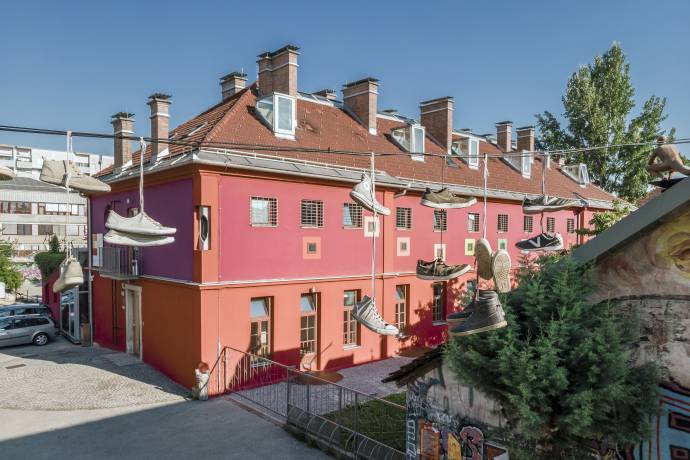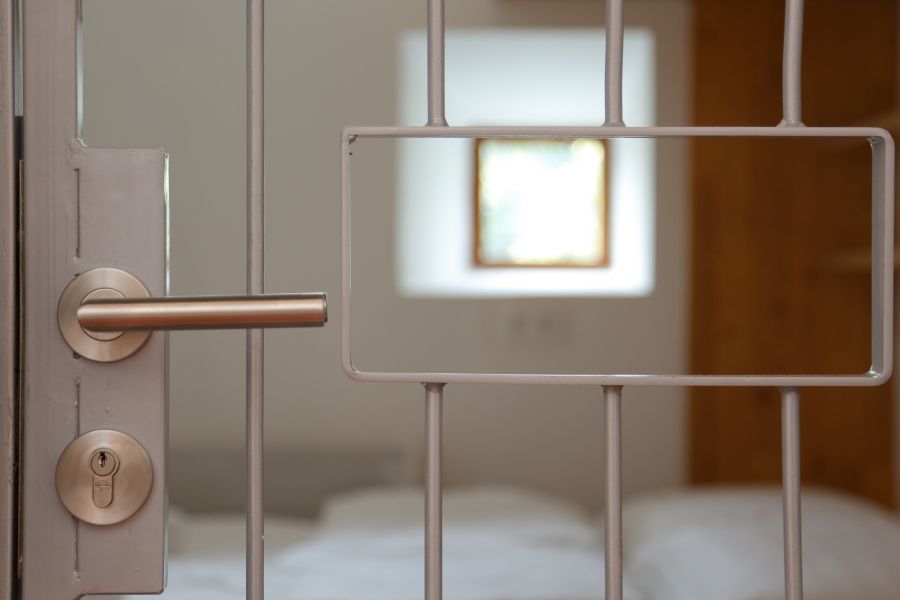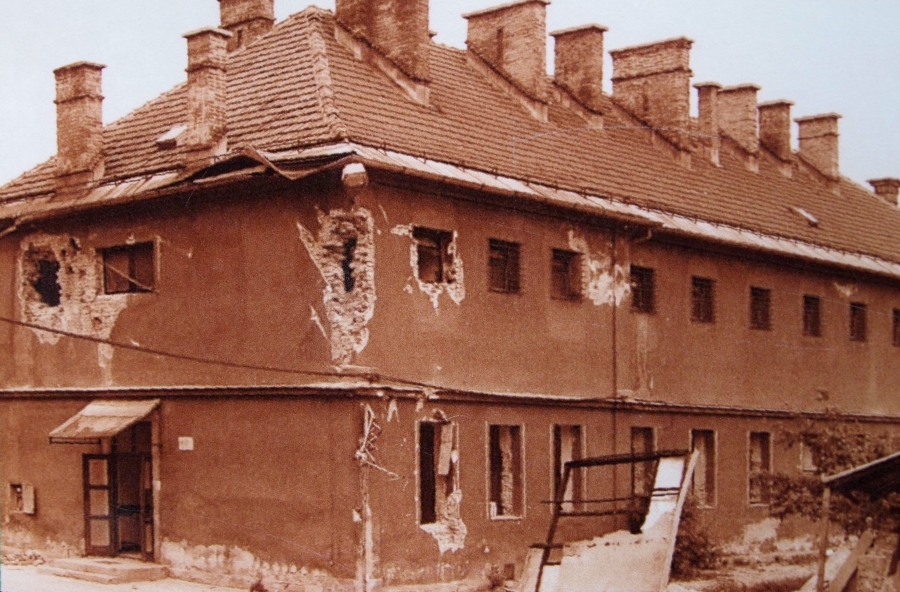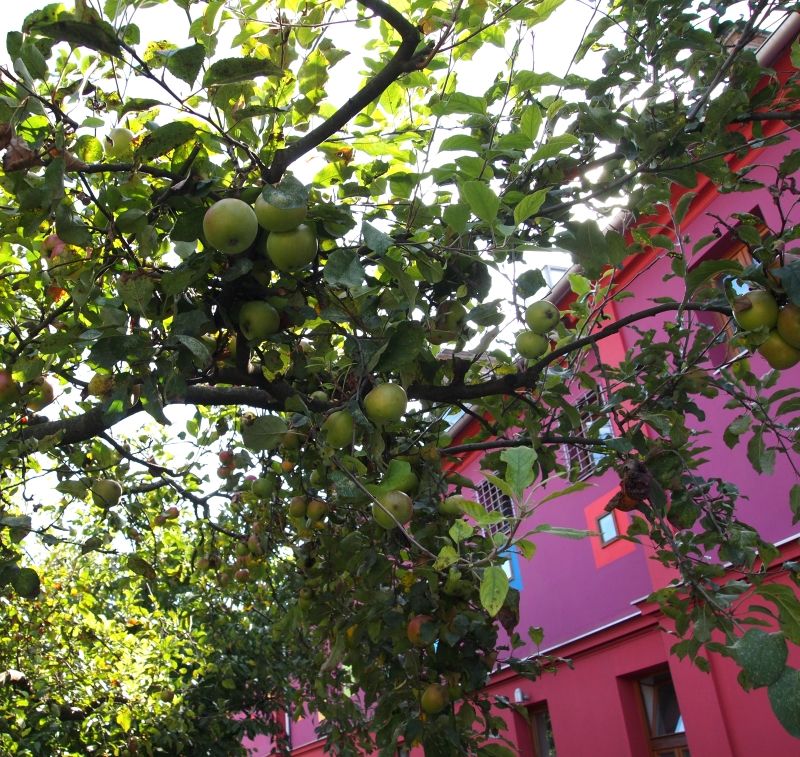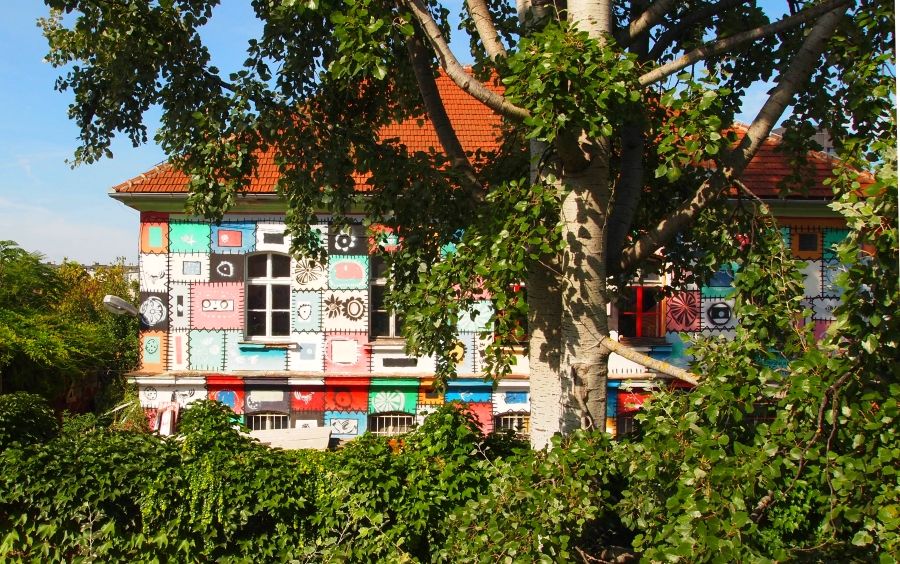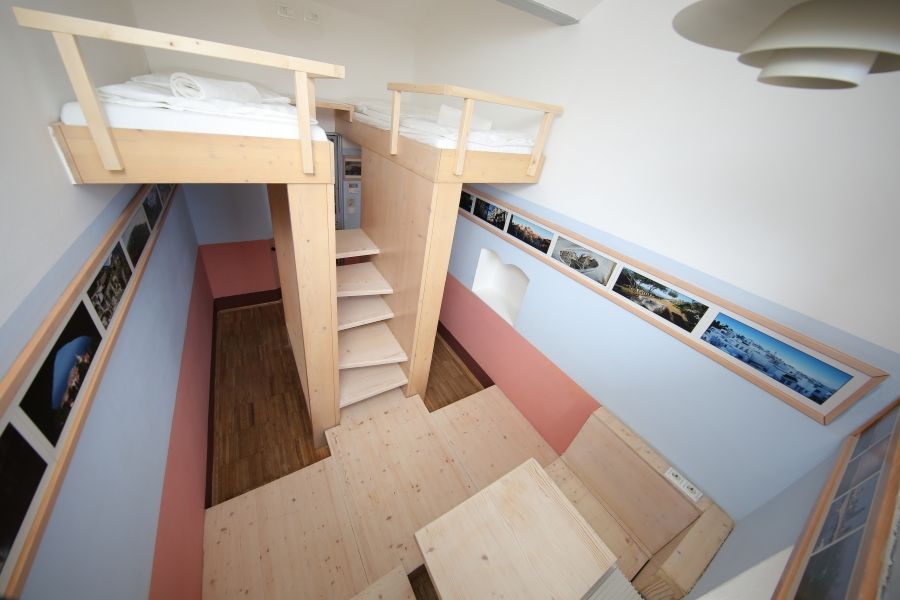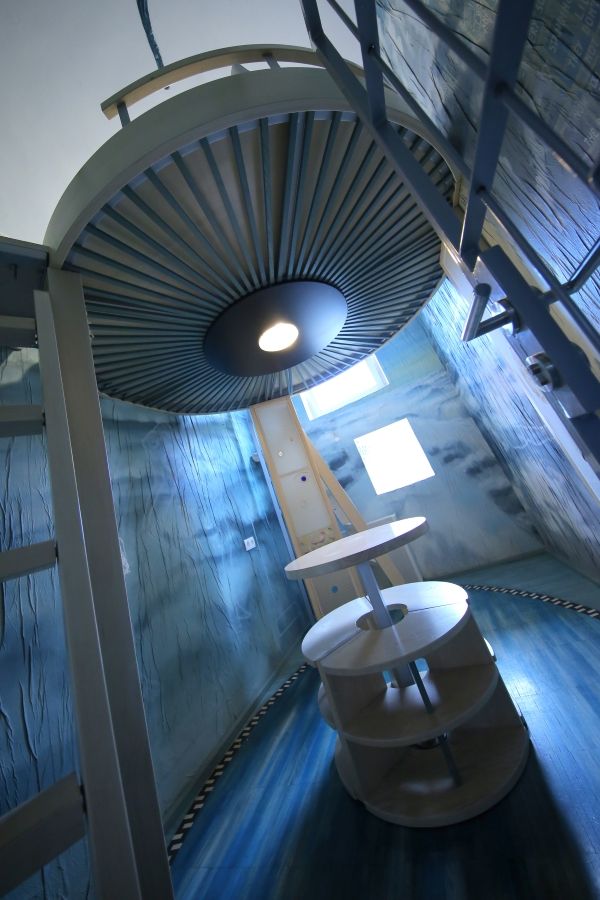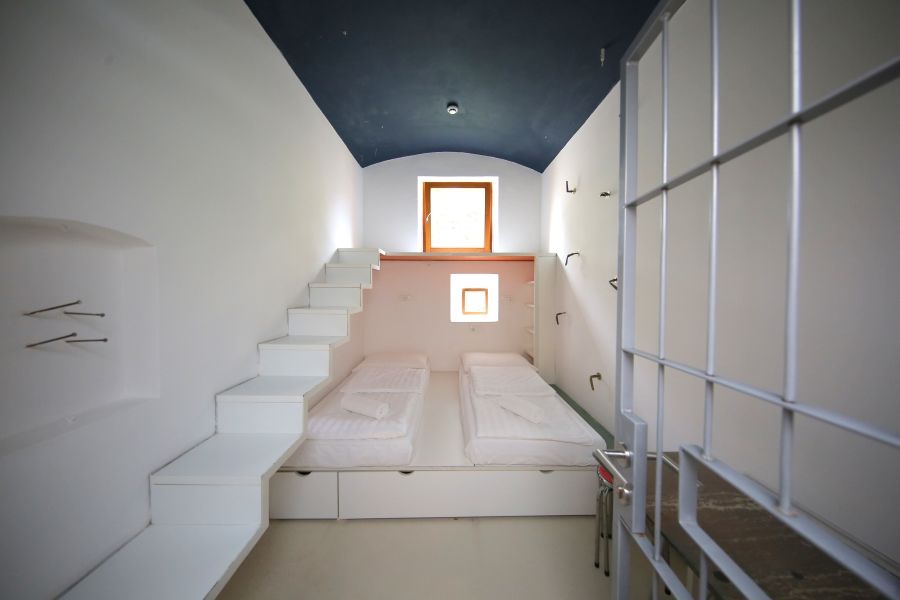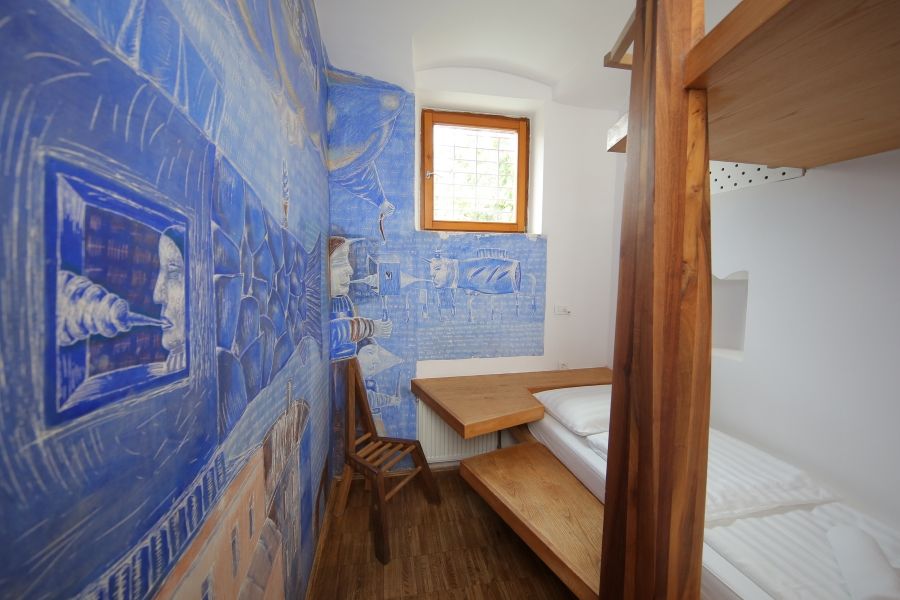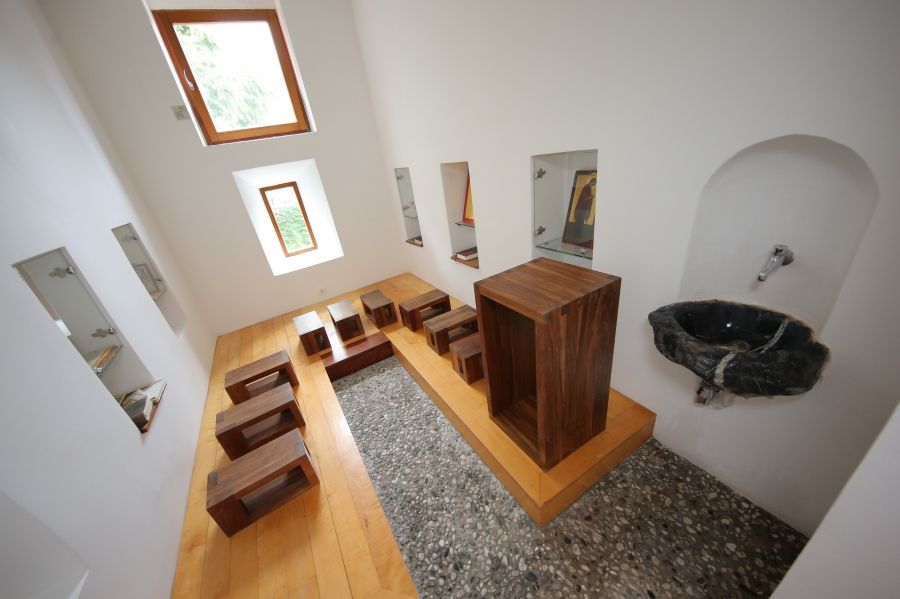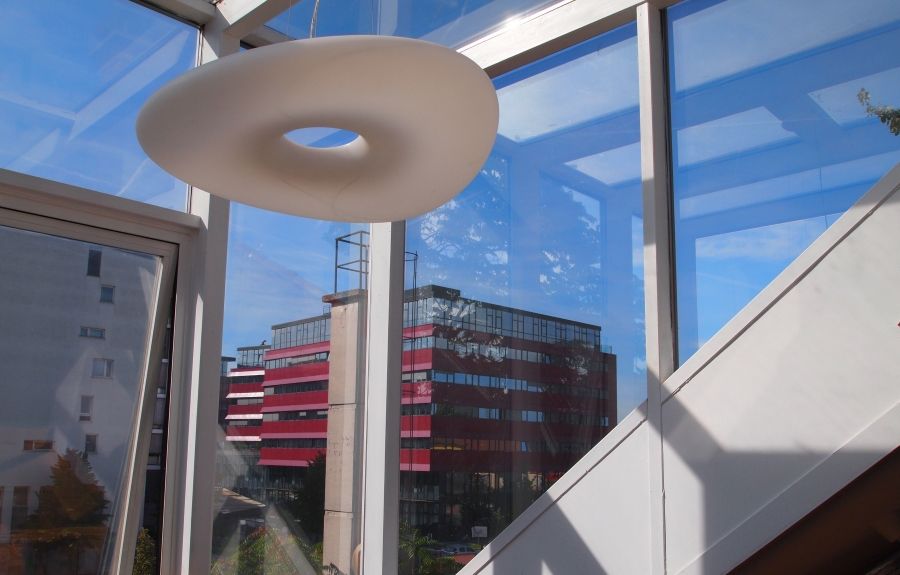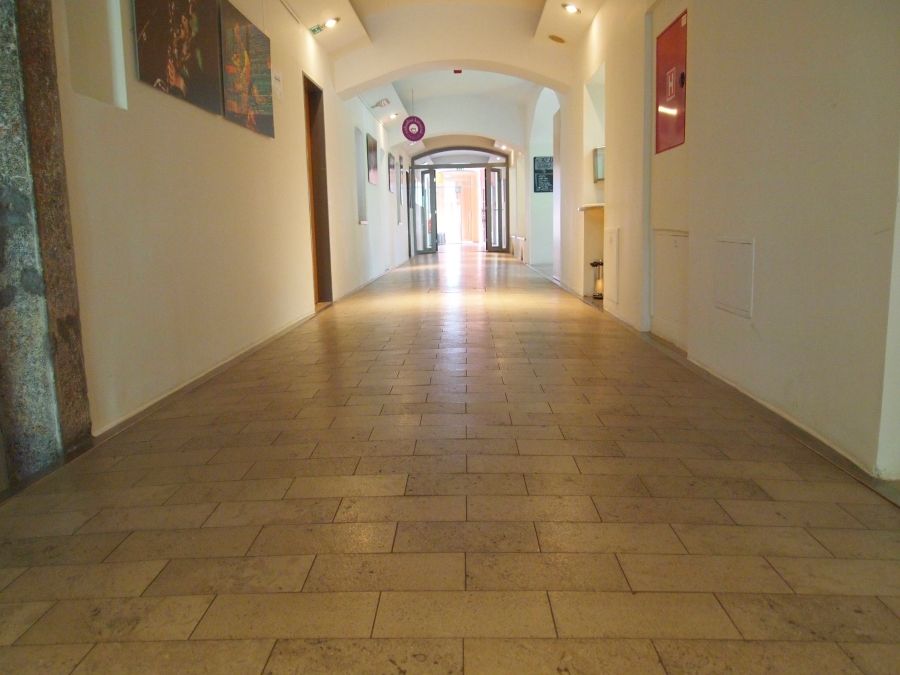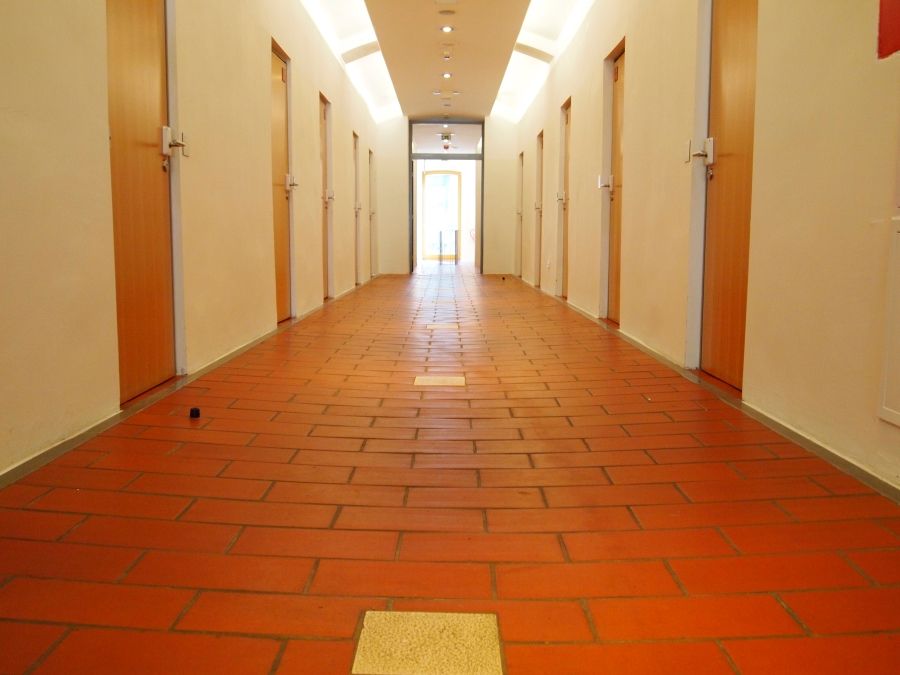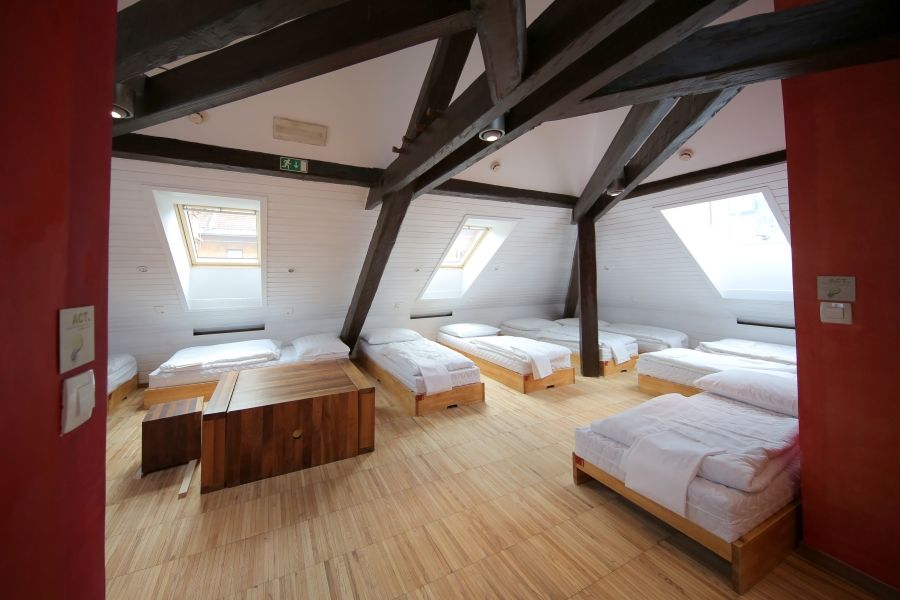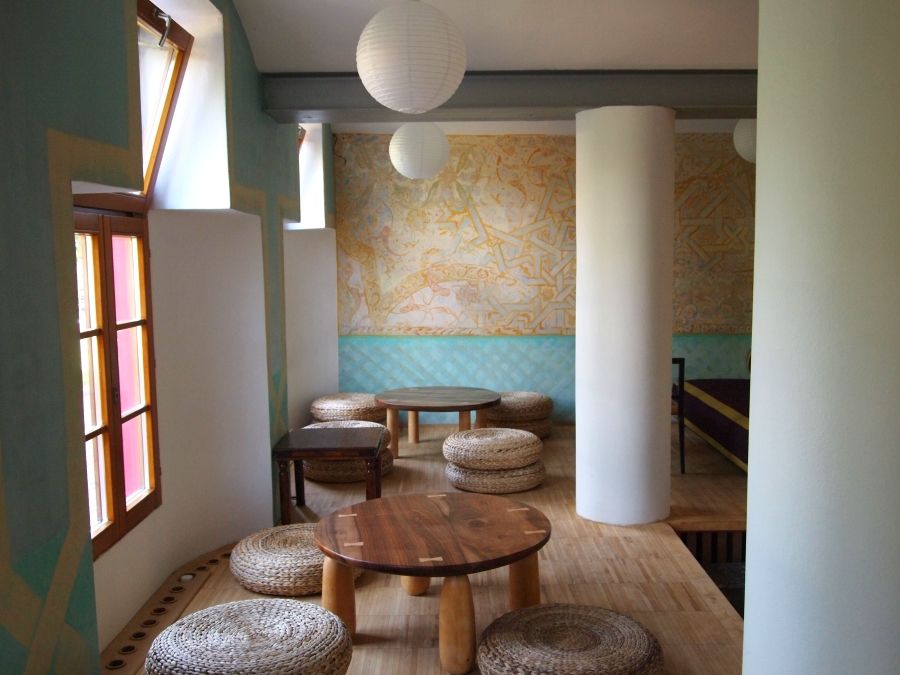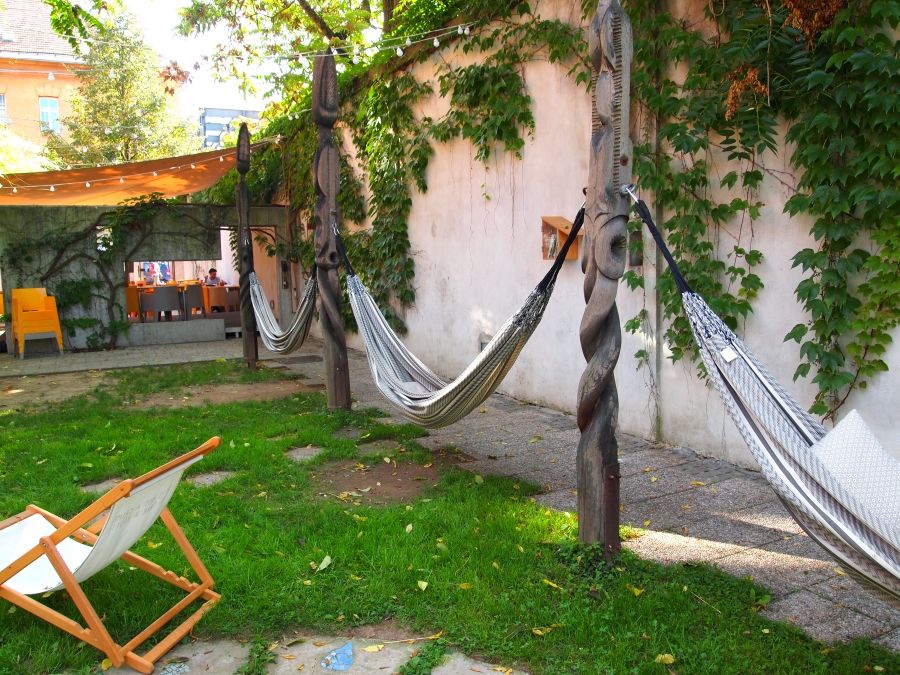September 13, 2018
It’s hard to imagine these days, but it was only in 2003 that the first hostel opened in Ljubljana, set up by an artist-led group that wanted to reclaim and in some ways exorcise the ghosts of a former military prison in Metelkova. Fifteen years later and that hostel, Celica, remains at the forefront of the hostel business in the city, if not the country.
A former prison that's a pleasure to stay in. Photo: Miha Mally
It’s not just a place that provides reasonably priced dorm bed and private rooms, but one that does so in style, both in form and function. As you’ll see in the photos accompanying this story, the place is beautifully designed, and fully renovated earlier this year in terms of plumbing, aircon, heating, common rooms and so on. But the other side of the story it’s place at the heart of the environmental and accessibility goals of the city, as well as its cultural life. The latter facts are attested to by the Travelife certification Celica has won, one of only two places in the country (the other being Ljubljana’s Hotel Park); it’s high ratings on Ljubljana by Wheelchair, being the only hostel with full disabled facilities; and the art gallery and museum on the premises, as well as the regular concerts held there (currently on Tuesdays, but expect this to expand in the future).
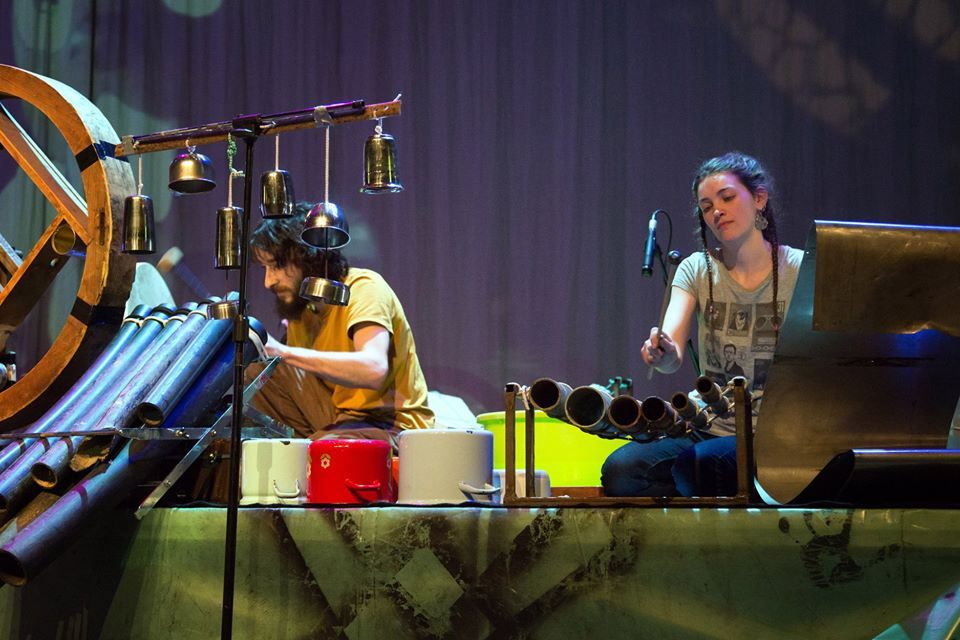
Music in the garden... Photo: Celica's Facebook
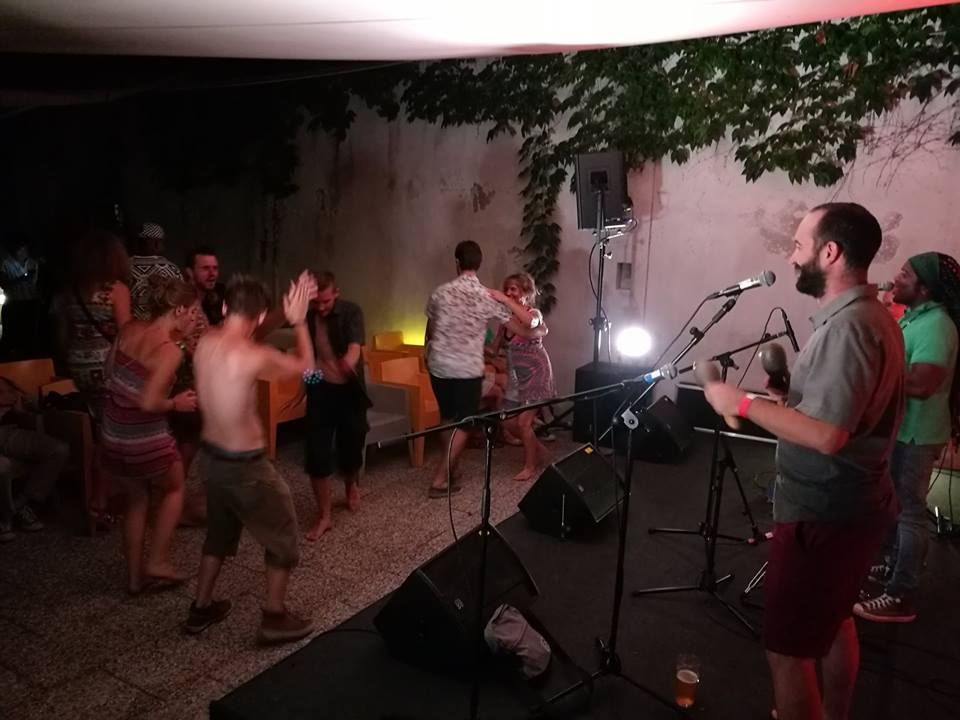
...can lead to dancing Photo: Celica's Facebook
The building was originally a 19th century military prison, back in the days when Slovenia was part of the Austro-Hungarian Empire. It was then passed to the Yugoslav Army when the country was still a monarchy and stayed part of the Metelkova army barracks when it became a republic. That part of the story finally ended in 1991, when the Slovenian Territorial Army defeated the Yugoslav People’s Army in the 10-day War of Independence.
The damaged building as it was when first occupied. Note how that hole in the corner has been maintained and transformed. Photo: Celica's museum
The prison, like the rest of the Metelkova complex, was then abandoned before gradually being taking over by artists and members of various subcultures. In September 1993 the city began trying to demolish the buildings, leading to a two-year occupation by activists under poor conditions, as the city tried to evict them by turning off the power and water, a story recounted in a recent interview with Suzana Tratnik, who was one of the people who saved the building that now houses Klubs Monokel and Tiffany.
The apple tree in the garden was planted by prisoners. Photo: JL Flanner
The hostel is in the heart of Metelkova. Photo: JL Flanner
The group that took over the prison included Janko Rožič, an architect, who envisaged turning a place of confinement into one of openness, welcome and warmth, a concept that found form as a hostel for international travellers. But the idea didn’t end there, as Rožič and his team invited more than 80 artists from around the world to design the individual cells in various styles, which is why each now has its own character and appearance. As the photos in this story show, these differences aren’t superficial – a matter of different colours or thematic wall-hangings – but part of the structure of each room, with the beds in different positions and shapes, along with the fixtures and furnishings. Thus if planning a stay it’s a good idea to check out the various “cells” online, so you can choose the one that suits you best.
Each of the 20 cells in designed in a different style, and your choice can be booked, if available. Photo: Miha Mally
One of the most popular rooms, with a circular bed suspended from the cieling. Photo: Miha Mally
Photo: Miha Mally
Photo: Miha Mally
While this might sound like a gimmick, something from a Tokyo love hotel, take a look around Celica and it’s clear that the principles of openness, welcome and warmth govern everything that happens there, and that Rožič and his artists, along with the current managers and staff, were fully committed to the project.
This can be seen in details both large and small throughout the place. For example, in the basement there’s a small museum, showing the solitary confinement cells in their original state – dark, cramped and unpleasant. Above this, on the first floor, is a former cell that’s dubbed the Point of Peace, a space for meditation and reflection. And above this on the second floor, where the en suite dorm rooms are, the same space is the “lighthouse”, a communal space by a communal kitchen, with glass walls and a glass ceiling, open to the light.
The Point of Peace. Photo: Miha Mally
The Lighthouse. Photo: JL Flanner
This same careful consideration and meditation on space and the subtle effects of one’s environment can be seen throughout Celica, right down to the floors of the main corridors themselves. And this is no exaggeration. The ground floor, which is mostly common areas, is convex, so that people naturally move to the sides and into the gallery, garden, café and so on, while the second floor, which has the cells, is concave, so people walk along the centre and not next to the doors.
The ground floor is convex... Photo: JL Flanner
...while the second floor is concave. Photo: JL Flanner
The same sensitivity is seen in the design of each of the rooms, be they individual cells or dorm rooms, which are clean and well-lit, with lockable storage space so you can go out and explore without worrying about your valuables.
One of the dorm rooms. Photo: Miha Mally
The hostel opened in 2003 and was originally owned and run by the City of Ljubljana and Slovenia’s student organisation, but in 2018 it came under the management of Ljubljana Castle, which was responsible for this year’s renovations, as well the ambitious plans for the future. These include expanding the cultural offerings that take place at the hostel, which at present include a gallery and regular Tuesday night concerts, followed by jam sessions, with details on Celica’s website, along with workshops, poetry readings, debates and presentations on different topics, from literature, philosophy and music, to nature, aesthetics, and history, with many of these taking place in a seminar room that can rented for events.
In line with the original vision of making Celica a warm and open place is the fact that it’s not only for guests to enjoy. Anyone is welcome to come in and have a drink at the café or in the garden, or enjoy breakfast or a snack, making it the only such space within the grounds of Metelkova, and an ideal place to stop if visiting the area to take look at the sculptures, murals and graffiti on display, for a number of reasons.
Part of the cafe. Photo: JL Flanner
Part of the garden: Photo: JL Flanner
First, there’s the ambience of the café itself, divided into east and west rooms with very different vibes. Then there’s the garden, with lots of tables and chairs, as well as a number of deckchairs and hammocks, with books and Wi-Fi to keep you company if alone, while a range of board games is available at the front desk if you want to settle down for some table top action. There are also free tours at 14:00 each day, giving you a chance to go to the basement and see part of the jail as it once was, and thus to understand how much the atmosphere and intention of the place has changed.
Staying there
Celica attracts young backpackers looking for something different, to be sure, but the backpackers of old have also grown up, and many now have families of their own or just want a little more privacy. There’s thus the option of hiring out a cell with two or three beds and a shared bathroom, an en suite room with four or five beds, or space in an en suite dorm, sleeping seven or 12. The prices vary with the seasons, but can be checked here.
As noted in the main text, there’s a café for breakfast and snacks, as well as a café / bar. Guests can do laundry and rent bikes, and the front desk can also help with airport shuttle buses, car rental, day trips and so on.
Finally, note that because of Celica’s status, fame and novelty it’s often fully booked, so reservations are recommended, especially if you want to choose a special cell – all of which can be seen here. But remember that non-guests are more than welcome to visit, look around, and enjoy a drink or a show in the garden, and that it’s currently the only such stop in the middle of Metelkova.

